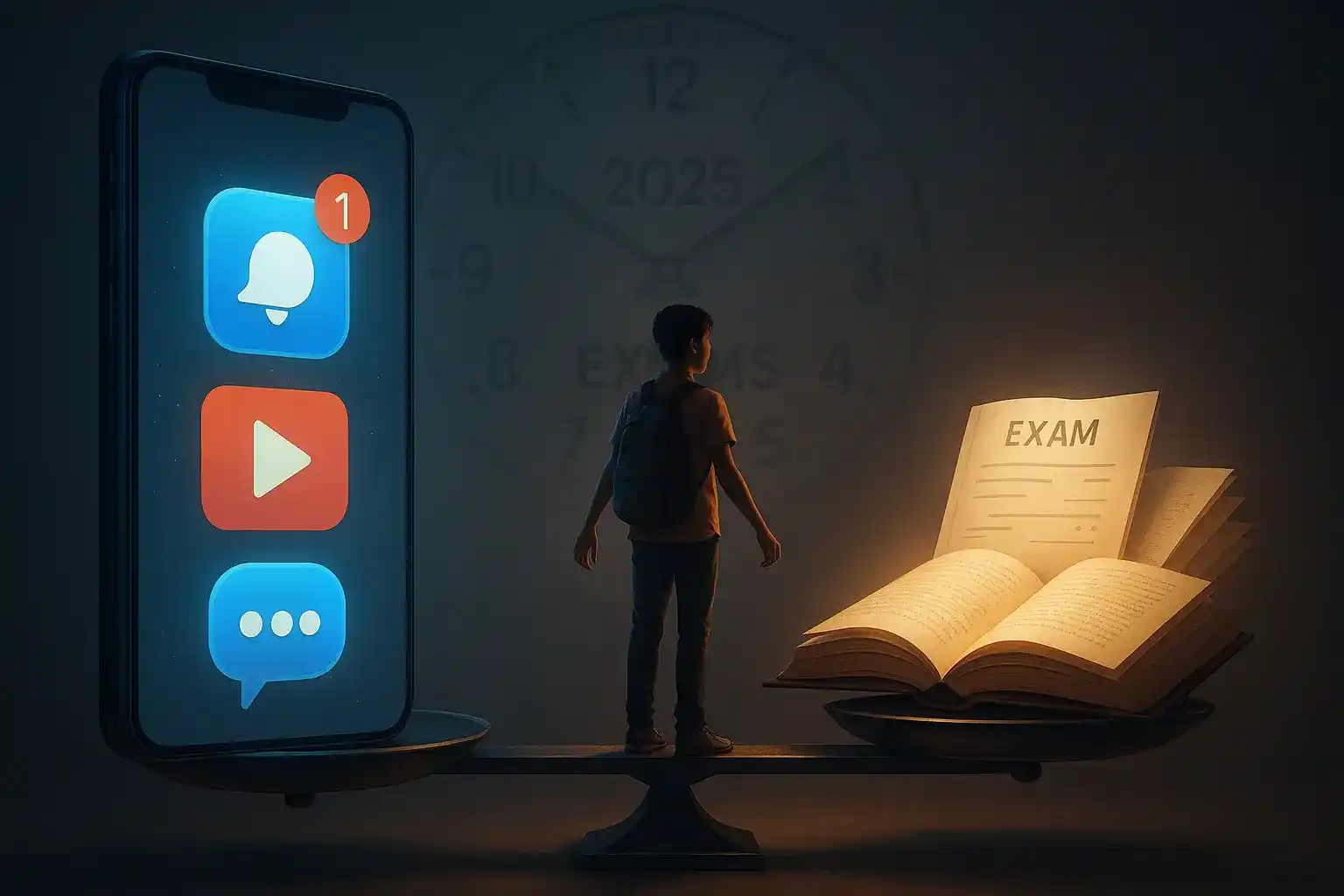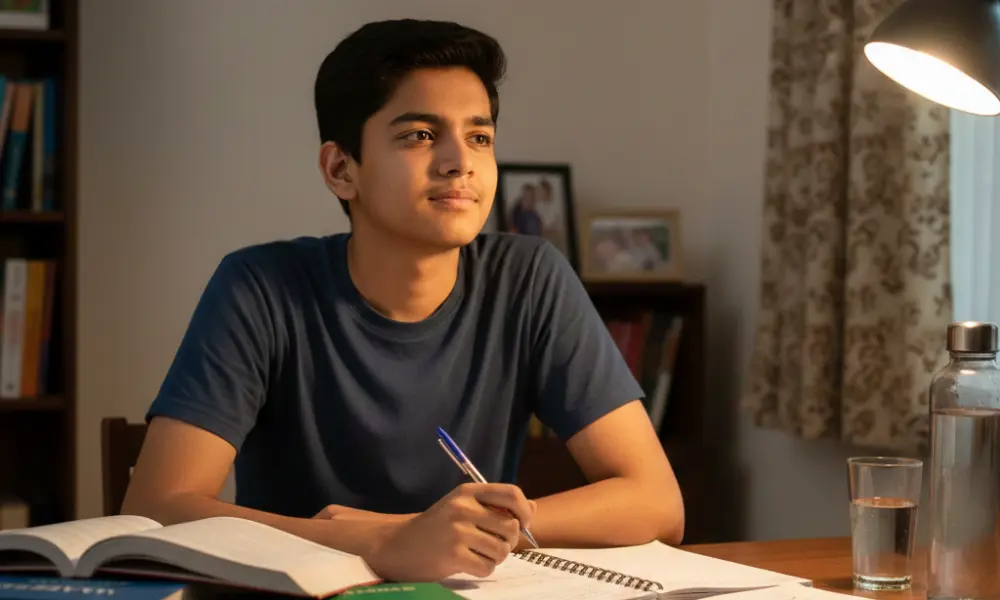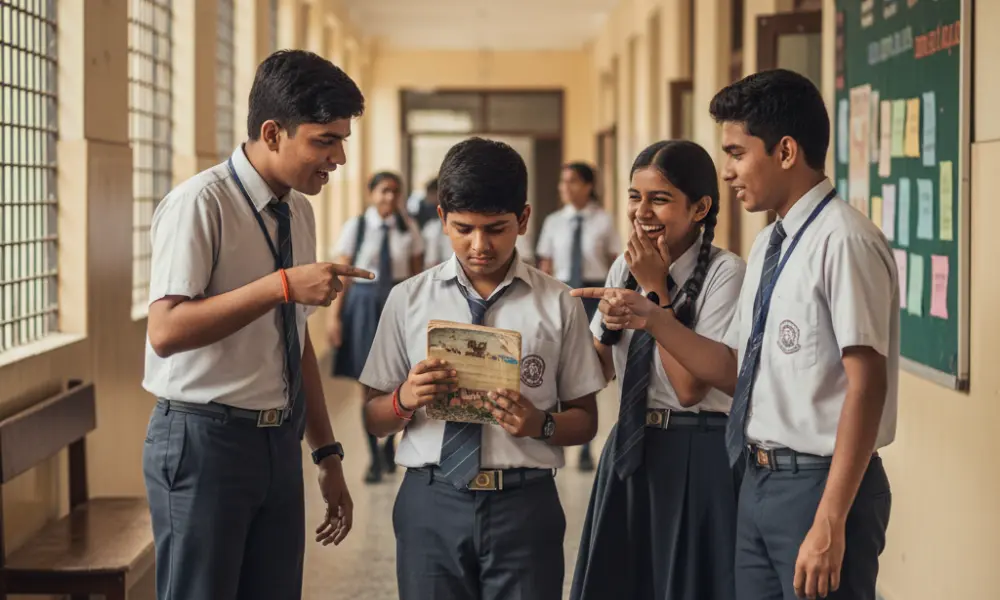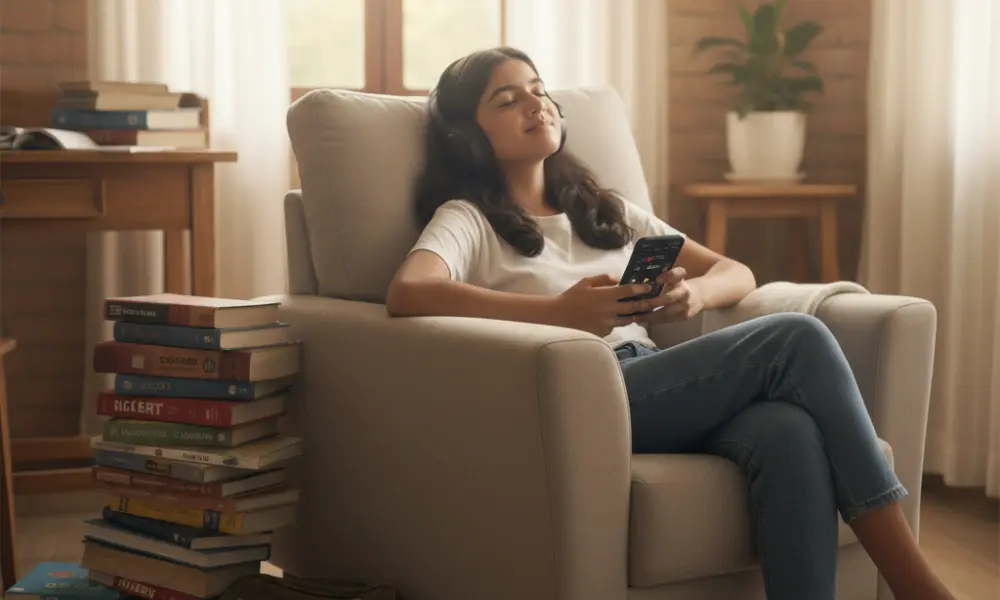Social Media and Study Time: Striking the Right Balance for Teenagers
Balancing screen time and study for CBSE student success
Social media can distract teenagers but also support learning. This blog helps CBSE students and parents manage screen time wisely during exams through practical tips, tools, and routines.

For CBSE students preparing for exams in 2025, social media is both a friend and a foe. On one hand, it offers endless distractions that cut into study hours. On the other, it provides learning resources, doubt-solving communities, and inspiration. Striking the right balance is essential not only for academic success but also for mental well-being. This blog explores how students and parents can manage social media use effectively without creating unnecessary stress.
Impact of social media on study time
Studies show that teenagers spend an average of three to four hours daily on social media. For exam-bound CBSE students, this often comes at the cost of revision and practice time. Notifications break concentration, while endless scrolling reduces productivity. A simple 10-minute break can quickly turn into an hour lost, affecting preparation quality. The constant comparison with peers on these platforms can also add stress rather than motivation.
Positive uses of social media for learning
Despite its drawbacks, social media can be used constructively if approached mindfully. Many CBSE toppers follow educational YouTube channels, Telegram groups, and Instagram pages that share quick revision tricks. Online communities also allow students to ask doubts, discuss concepts, and stay updated on CBSE exam changes. Used wisely, social media can provide bite-sized learning and peer support that supplements textbooks and school lessons.
Common distractions and pitfalls
The main problem is that platforms are designed to keep users engaged. Teenagers often face distractions such as:
Constant notifications from friends and groups
Reels and short videos consuming more time than planned
Peer pressure to stay active online rather than study
Late-night scrolling that disrupts sleep and reduces focus
These pitfalls can create a cycle of procrastination where students delay revision until it is too late.
Psychological effects on focus and stress
Social media does not just take away time; it also impacts focus and emotional well-being. The dopamine rush from likes and comments makes it harder for students to sit through long study sessions. Fear of missing out (FOMO) can create anxiety, while constant exposure to others’ achievements may lead to unhealthy comparisons. All of these can lower self-confidence and increase exam stress if left unchecked.
Tips to regulate screen time
Students can enjoy the benefits of social media while controlling its drawbacks through simple strategies:
Set specific time slots for checking social media, such as 30 minutes after evening study
Turn off unnecessary notifications to avoid constant distractions
Use the Pomodoro technique where short study sessions are followed by short breaks
Keep the phone out of reach during serious revision sessions
Social media should fit into your study routine, not replace it.
How parents can set boundaries effectively
Parents often worry about excessive screen time but strict restrictions can backfire. Instead of banning social media, they should encourage balance. Useful approaches include:
Discussing and agreeing on daily screen-time limits with the child
Encouraging family tech-free times, especially during meals and before bedtime
Praising discipline when students stick to their agreed study-social balance
Modeling healthy device use themselves
The goal is to guide rather than police, creating an environment of trust where teenagers feel responsible for their own time management.
Apps and tools to limit distractions
Technology can also solve the problems it creates. There are apps designed to help students stay focused while still allowing limited social media use. Popular options include:
Forest – grows a virtual tree as long as the student stays away from the phone
Stay Focused – blocks selected apps during study hours
Digital Wellbeing (built into Android) – tracks screen time and sets app timers
Apple Screen Time – similar features for iPhone users
Using these tools makes it easier for students to self-regulate and track progress without constant parental intervention.
Creating a healthy digital routine
The key to balancing social media and study time is not elimination but moderation. Students should build routines where revision, rest, and recreation all find a place. A healthy digital routine could include fixed study slots, limited social media breaks, offline hobbies, and regular sleep. Parents can support by creating a home environment where balance is normalized rather than enforced. With this approach, CBSE students can prepare confidently for exams while still enjoying the digital connections that matter to them.
Social media is powerful when used with purpose. Control it, and it becomes your tool for learning and relaxation instead of your biggest distraction.
Suggested blogs

How CBSE Class 10 Students Can Manage Stress as Board Exams Approach
Effective strategies for managing exam stress in CBSE Class 10 students.

Managing Peer Pressure in School – A Student’s Survival Guide
Strategies for students to navigate peer pressure with confidence.

How Music Affects Study Focus – Science-Backed Insights for Students
Discover how music can enhance your study sessions and improve focus.

How Journaling Can Improve Academic Performance and Mental Clarity
Unlocking the power of journaling for better learning and mental health.
